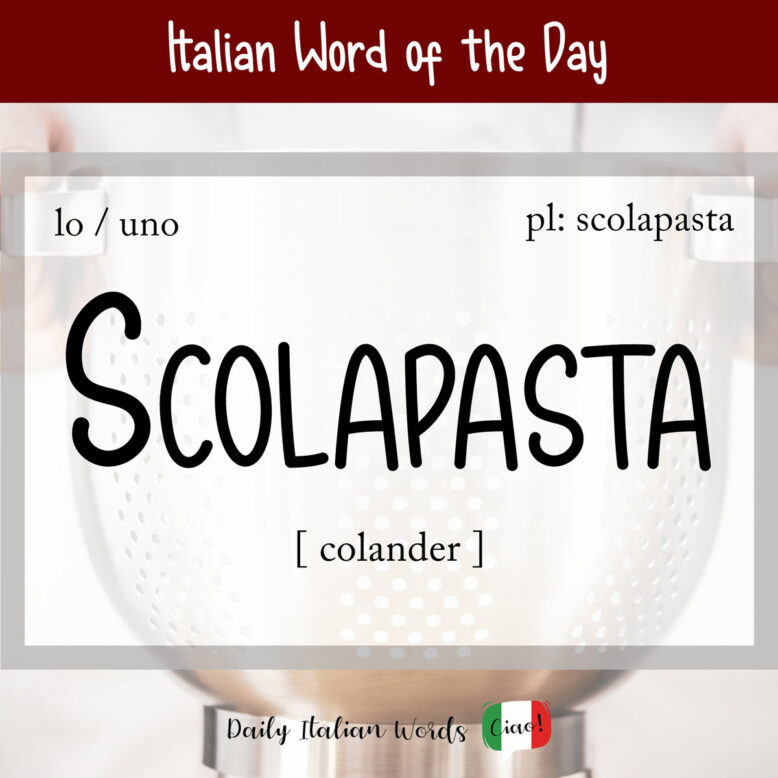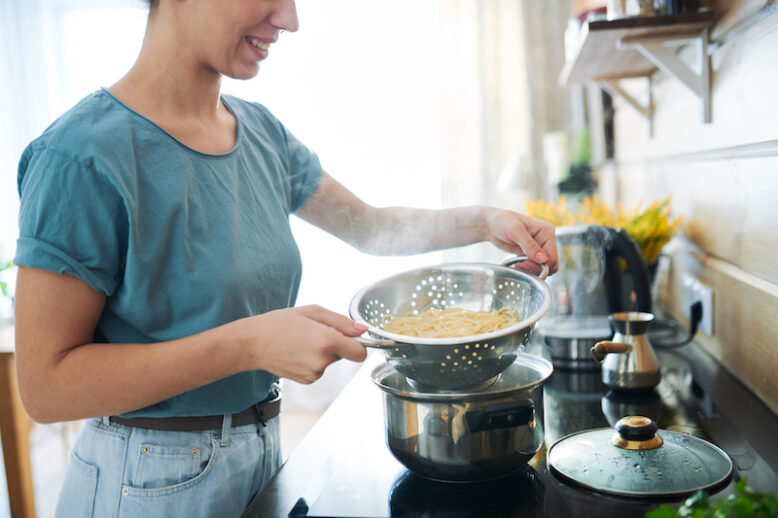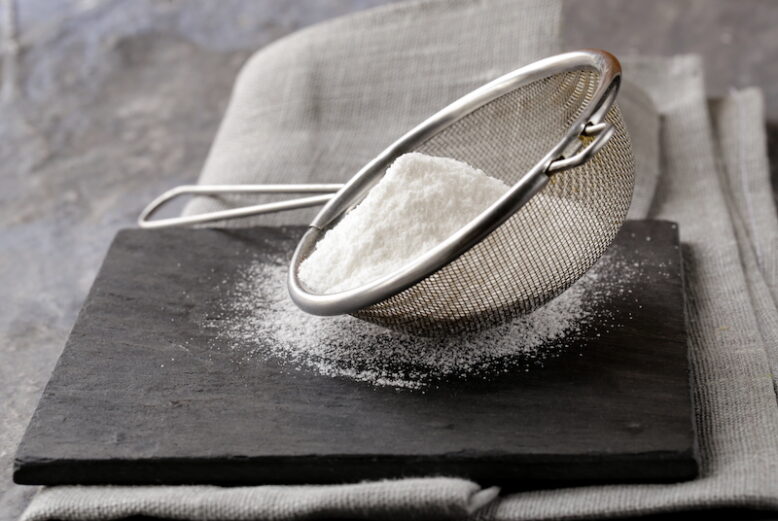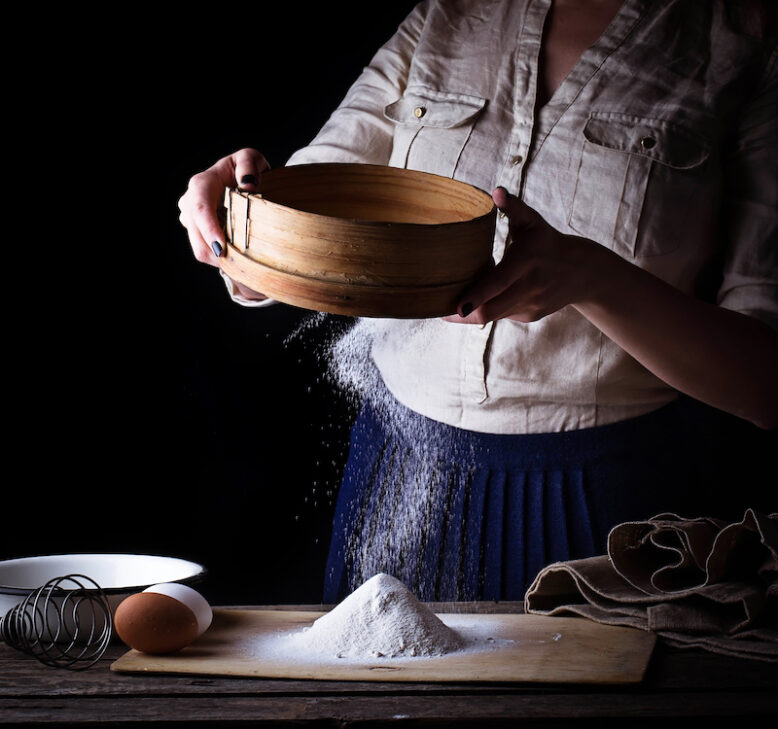Some of you might think this is an unusual choice for the word of the day, but based on recent conversations in our Facebook group, it’s also one of your favourites!
Scolapasta, which is made up of two words – the verb scolare (to drain or to strain) and the noun pasta – literally means “pasta strainer”.
scolapasta
colander

Despite ending in an -a, it is a masculine noun and invariable in its plural form. It takes the following definite and indefinite articles:
- lo scolapasta = the colander
- gli scolapasta = the colanders
- uno scolapasta = a colander
- degli scolapasta = (some) colanders
As you can see, scolapasta doesn’t change to *scolapaste/i in the plural. This is because it is invariable, a technical term indicating that a noun retains the same form in both the singular and the plural.
Ho ereditato uno scolapasta da mia mamma.
I inherited a colander from my mom.
While the version starting with the prefix s- is the most widespread, you might also come across the terms colapasta (colare “to strain” + pasta) and colabrodo (colare “to strain” + brodo “broth”) to refer to a colander. Colare and scolare mean the same thing, but the s- “confers an intensive value compared to the original verb” according to Treccani.

In some dialects of Italian, it is referred to as a scola macaron (literally “a macaroni strainer”) or sculapasta (mainly Sicilian).
Another word that belongs to the same kitchen utensil family as scolapasta is colino, which in English is referred to as a strainer, sieve, or sifter.
Mi passi il colino? Devo filtrare il succo.
Can you pass me the sieve? I have to strain the juice.

Some other related terms you might encounter include setaccio, which is a wheel-shaped sifter used to separate small particles from large ones, and the old-fashioned vaglio, which today, mostly exists in figurative expressions like passare al vaglio (meaning “to examine carefully before coming to a conclusion”).

Below are some other everyday kitchen utensils in Italian that we use when preparing a meal:
- coperchio = lid
- pentola = pot
- padella = pan
- fornello = burner
- sbucciatore = peeler
- mestolo = ladle
- cucchiaio di legno = wooden spoon
Heather Broster is a graduate with honours in linguistics from the University of Western Ontario. She is an aspiring polyglot, proficient in English and Italian, as well as Japanese, Welsh, and French to varying degrees of fluency. Originally from Toronto, Heather has resided in various countries, notably Italy for a period of six years. Her primary focus lies in the fields of language acquisition, education, and bilingual instruction.


